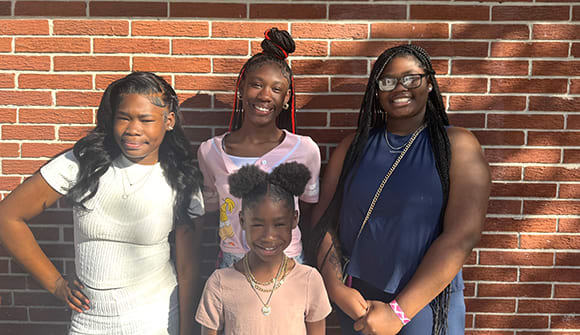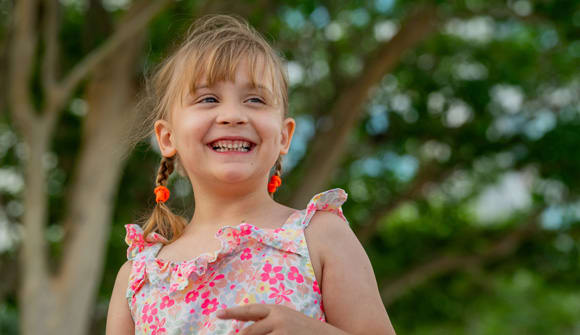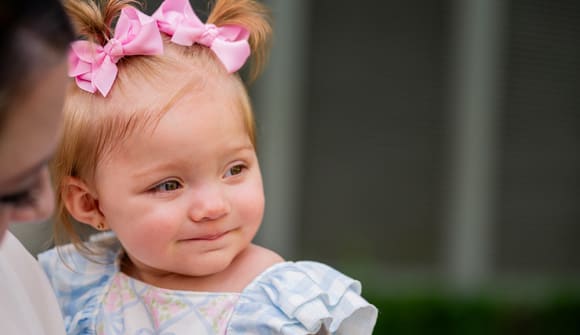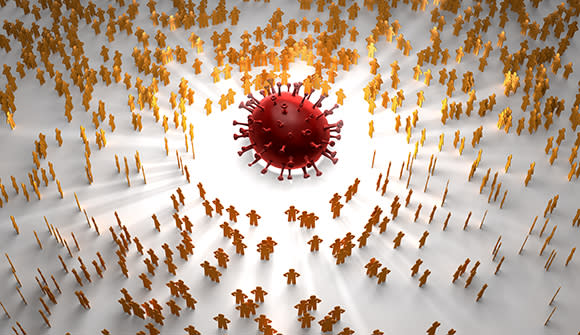Social media and mental health
What parents can do to protect their kids.
Article Date:
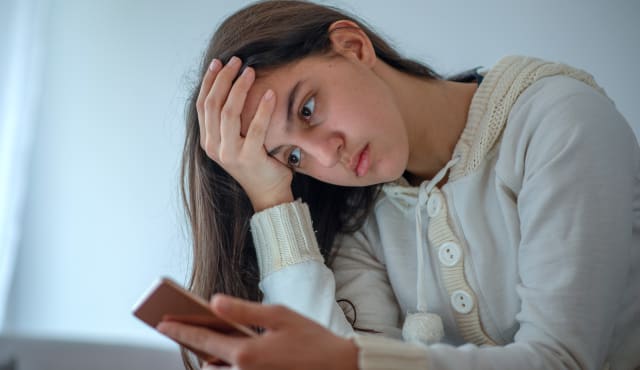
In today’s digital world, social media platforms are just a normal part of daily life. The apps can be a great way to share moments, thoughts and experiences.
Whether it’s TikTok, Instagram or good old Facebook, the concept remains the same: You post a photo or video, send it out to the world and wait to see who responds. Sure, it’s sometimes disappointing when that witty post you spent 20 minutes crafting isn’t publicly acknowledged, or worse, triggers a less-than-flattering response. While some adults may have more experience or exposure to the negative side of social media, what impact does this rejection, blatant or perceived, have on children’s mental health?
How social media affects kids
With kids in mind, some platforms have taken steps to address mental wellness. Instagram, for example, offers users the option to hide the specific number of “likes” a post receives to “depressurize” the platform and make it a safer, more positive space. And while there is some research about how teens’ brains react to likes and comments, Francesca Varallo Sims, PsyD, director of education and training for Baptist Behavioral Health and Wolfson Children’s Behavioral Health, cautioned that online activity in this age group is about more than likes.
“Social media can negatively impact children and teens in various ways, including an increase in anxiety, depression and sleep issues,” she said. “Unrealistic online content may damage self-esteem and body image. These platforms can also be a breeding ground for cyberbullying.”
Recognizing cyberbullying signs
According to the American Academy of Pediatrics (AAP), cyberbullying – any bullying behavior that takes place online – includes sending mean messages, sharing embarrassing pictures of someone, creating or spreading untrue stories about others, and more. Dr. Varallo Sims assured parents they can help their child avoid it with supervision, both in person and online.
Most importantly, parents should watch out for signs of cyberbullying. Red flags include changes in behavior, demeanor, energy level, eating habits or sleeping habits.
“Social media allows bullies to have 24/7 access to harass or embarrass children and teens,” Dr. Varallo Sims said. “Another challenge with cyberbullying is that there’s often more anonymity, especially through using fake accounts on apps like Snapchat, TikTok or Instagram. This aspect makes it harder to hold cyberbullies accountable and to effectively end their behavior. Parents can use our Parent Cyberbullying Guide to recognize signs and learn strategies to better support children. Common Thread by Wolfson Children’s also has a Teen Cyberbullying Self Check-in & Action Plan for teens to reflect on any cyberbullying incidents. This check-in can also help them process feelings, practice self-care and seek support when needed.”
Setting screen time limits
Because the signs aren’t always obvious, or your child may not tell you exactly what’s causing these changes, parents need to supervise their child’s social media use.
“Parents can help manage kids' social media usage by setting screen time limits, reviewing their activity and blocking inappropriate content, discussing online experiences, and modeling balanced tech use in the home,” said Dr. Varallo Sims. "Parents may also encourage offline, in-person activities, teach children critical thinking about online content, and monitor their mood or behavior changes.”
Talking about online influence
Lastly, Dr. Varallo Sims recommended that parents be mindful of what their kids are watching and liking online. Make sure it doesn’t warp their perception of real versus highlight reel.
“Social media often distorts how kids view themselves and life in general,” she said. “Since people mostly share highlights and idealized photos online, children may develop unrealistic expectations for what ’reality’ is. This is especially concerning during the teen and pre-teen years, when they’re forming their identity. Parents should be informed about what content their kids are seeing and talk with them regularly to help them understand it. There are also apps available to track and limit social media usage on kids’ devices. Finally, it’s beneficial to regularly update parental controls and individual app settings to reduce access to mature content and chatting with strangers.”
Is your child experiencing negative emotions from their social media use or being cyberbullied?
The specialists at Wolfson Children's Behavioral Health can help. Please call 904.376.3800 to connect with a pediatric behavioral health provider. Additionally, Common Thread by Wolfson Children's has resources to help support children's mental health and wellness. Visit WolfsonChildrens.com/CommonThread for more information.
